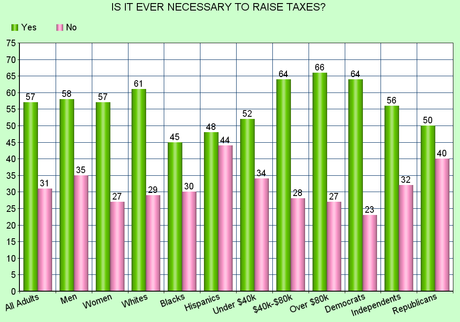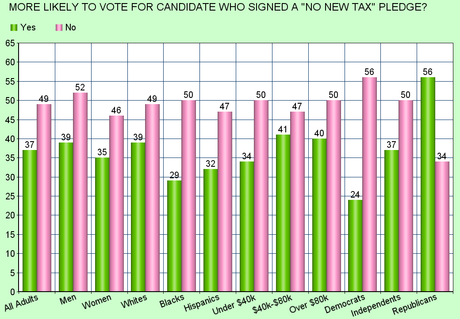

While the public is angry with both parties in Washington, they seem to be a bit more angry with the Republicans. That is probably because the Republican policies are not accepted by most of the public. The GOP wants to privatize both Social Security and Medicare, and failing that, they would like to cut funding for both programs. The GOP opposes raising the minimum wage, and many in Congress would like to abolish the minimum wage. The GOP continues to support the exporting of American jobs (and even support tax breaks to help corporations do that). And the GOP wants to cut funding for food stamps, education, and the EPA.
None of those policies are supported by most of the American public. In fact, significant majorities of the public oppose those policies. Now it seems that those congressional Republicans are out-of-step with the American public on another issue -- tax policy, which the Republicans were counting on to propel them to victory in 2016.
While the Republicans are vehemently opposed to any new taxes, the public understands that sometimes raising taxes is necessary. About 57% (a significant majority) say this. And in what has to be a surprise for the congressional Republicans, most Americans aren't impressed by pledges to not increase taxes.
Americans understand that such a pledge is not made to protect them, but to protect the rich and the corporations from having to pay their fair share in taxes. The public is becoming aware that the "favor the rich" tax policies of congressional Republicans Has created a vast gap between the wealthy and the rest of America, and has done significant damage to this country -- stagnating wages, shrinking the middle class, stunting economic growth, and increasing poverty. Most Americans would like to see tax increases on the rich, and reform which would make corporations pay their taxes.
This has to be disconcerting for congressional Republicans. They had thought this was a winning policy for them. They were wrong.
The charts above were made from a YouGov Poll done between March 4th and 6th of a random national sample of 1,000 adults, with a margin of error of 4 points.

